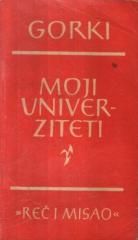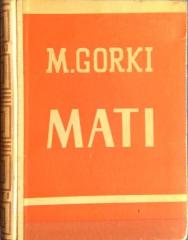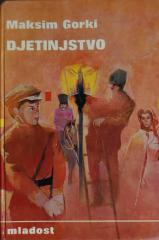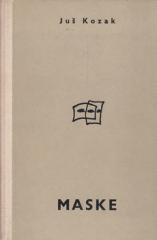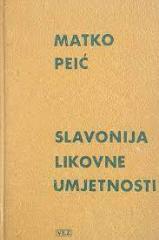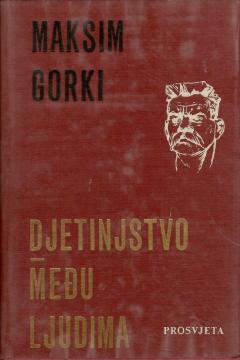
Djetinjstvo / Među ljudima
„Detinjstvo” je autobiografski roman Maksima Gorkog, prvi deo njegove autobiografske trilogije, koja obuhvata i dela „Među ljudima” i „Moji univerziteti”. „Među ljudima”, drugi deo autobiografske trilogije, nastavlja priču iz romana „Detinjstvo”.
„Detinjstvo” opisuje teško detinjstvo Gorkog u Rusiji krajem 19. veka, u kome su siromaštvo, porodične svađe i teški uslovi oblikovali njegovu ličnost i pogled na svet.
Roman počinje smrću oca glavnog junaka Alekseja Peškova (pravo ime Gorkog), nakon čega ga majka vodi kod bake i dede u Nižnji Novgorod. Porodična kuća nije utočište koje je očekivao. Njegov deda je strog, surov i pohlepan čovek, dok je baka oličenje ljubavi, topline i mudrosti. Baka mu priča priče i pesme koje ostavljaju dubok trag u njegovoj mašti i razvijaju smisao za umetnost.
Aleksejevo detinjstvo obeležilo je fizičko i emocionalno zlostavljanje, siromaštvo i svakodnevne borbe za opstanak. Ipak, kroz tešku svakodnevicu Aleksej uči o ljudima, njihovim manama, ali i o ljubavi, saosećanju i pravdi. Njegova baka postaje moralni oslonac i simbol dobrote u surovom svetu. Očima deteta Gorki prikazuje društvenu nepravdu i bedu tadašnje Rusije, postavljajući temelje za svoja kasnija socijalistička uverenja.
Gorki piše emotivno i realistično, koristeći jednostavan, ali moćan jezik da prikaže svet očima deteta. „Detinjstvo” nije samo priča o odrastanju, već i duboko promišljanje ljudske prirode, društva i nade. Delo je postalo klasik ruske književnosti i ostavilo je trajan uticaj na čitaoce širom sveta.
„Među ljudima” prati odrastanje Alekseja Peškova (autora) nakon što je napustio kuću bake i dede. Delo je duboko introspektivno i realistično, fokusirano na Aleksejev život među ljudima iz različitih društvenih slojeva, gde se suočava sa novim izazovima i sazreva kroz teška iskustva.
Roman počinje kada mladi Aleksej napušta porodicu da bi započeo život kao samostalni radnik. On se suočava sa nemilosrdnim svetom siromaštva i eksploatacije. Radi na raznim poslovima – postaje asistent u radnjama, radionicama i na raznim drugim mestima – i kroz te poslove upoznaje različite ljude koji utiču na njegov razvoj.
Kroz ove susrete Aleksej uči o nepravdi, licemerju i surovosti, ali i o solidarnosti, ljubavi i dostojanstvu. Neki od ljudi koje sreće ostavljaju pozitivan uticaj na njega, dok drugi predstavljaju simbol surovosti društva. Posebno mesto u njegovom razvoju zauzimaju intelektualci i radnici sa kojima razmenjuje ideje i otkriva interesovanje za književnost i umetnost.
Aleksej se kroz čitav roman suočava sa osećanjem usamljenosti i potragom za sopstvenim identitetom. Njegova želja za znanjem i dubljim razumevanjem života je sve jača, što ga na kraju vodi na put duhovne i intelektualne emancipacije.
Nema primeraka u ponudi
Poslednji primerak je nedavno prodat.
